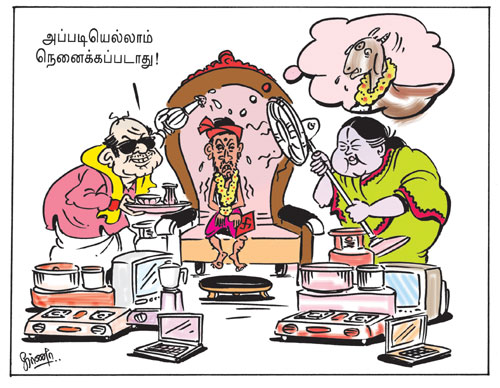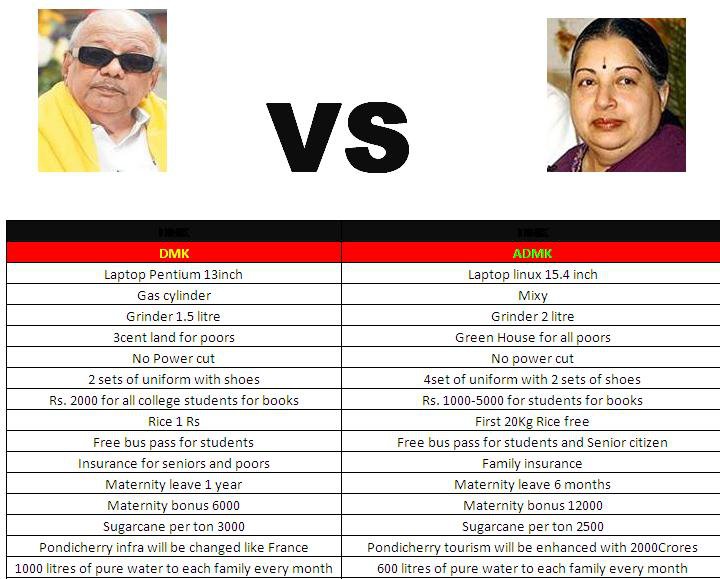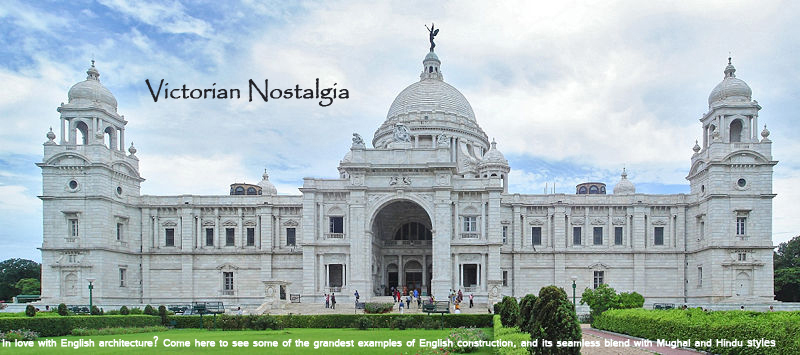“Divide and Rule” — The colonial hangover in modern Engineering education.
Over the last few days I have been hearing constant news on the state of affairs at MIT. Being my alma mater, I have been following the developments there with keen interest.
From whatever I have gathered, the students there are out on a strike, the reason being the suspension of 4 students on charges of ragging.
Ragging – a very convenient term for victimization. Much like eve-teasing or dowry. No questions asked, no explanations sought. If you are a senior and they charge you with ragging, then there is nothing much you can do about it.
But thank god, the college I left still retains the sense of unity which so endeared it to me. The whole college is now up in protest, and so are the alumni, who in spite of being in different corners of the world have been quick to unite and extend their support.
Before going in, the seriousness of the charge has to be examined. From accounts coming in from both the students and the authorities, the suspended students had called over a few first years to their classroom and held a talk with them in the lunch interval. In the words of the Vice-Chancellor, “It was not really ragging. As faculty members have been doing the rounds in the hostels in the nights, the senior students had asked the juniors to assemble in the classroom and had an unnecessary talk.”
Now what is meant by unnecessary talk? Is it grave enough a mistake to elicit a punishment like suspension which can spoil a student’s whole life? What problems are the authorities out to avoid, and what are the ones they are creating in the process?
The popular rule in MIT in the last few years has been to isolate the first years from the rest of the college. For the first few months the freshers have completely different class timings, have different mess timings and have zero opportunities of contact with the rest of the college. And anyone from either camp, who tries to get in touch with the other, is severely punished and abused by the authorities. Seems Taliban is getting a stronghold in TN colleges far away from America’s scrutiny. Seems the college authorities just took over all the rights of ragging from the students, by choosing to indulge in it themselves.
The colleges here have seen a drastic fall in tolerance levels, unlike most other places where things have been getting liberal with time. First they decided to impose a dress code, then decided to ban all electronic gadgets, and now they decide to implement a new law of untouchability, which if broken invites the kind of punishment which even the kangaroo courts of rural Haryana are incapable of. Maybe they could start calling it “Honour suspension”, in line with all the arbitrary honour killings that happen everywhere else, just to rub in the point that two camps which weren’t supposed to mingle committed the crime of doing so.
In a totalitarian regime, every new ruler, just to impose his authority on the system, and emphasise his contribution to the already existing set of draconian laws, comes up with new ones which even put the old ones to shame. Considering that the scenario in TN engineering colleges isn’t too different, I am just dreading the kind of new innovative rules they may come up with. Maybe the next dress code would be a uniform Purdah for all, just so that the students don’t get distracted by having the necessity to look at each other. Or maybe they would just fit blinders on their eyes, like they do to a horse, just so that they are focussed. Aren’t students just another form of cattle, to be constantly herded, to be punished severely for every wrong step, and reared for the single purpose of ruminating on well-worn lecture notes and coming out with shit-loads of answers in exams. Who cares if they learn human interaction during the course of their education? Who cares if they actually gain the courage to meet new people and face new situations? Why teach them to tolerate each other, to behave with others in a human way. Isn’t it more convenient to lock them all up separately so that they just don’t meet? Makes your job much easier, doesn’t it Ms.Dean.
I have studied in two awesome colleges which made me what I am in life. I studied in MIT before any of this tyranny had taken over. And then I went over for my PG to a place where any sort of administrative interference was completely unheard of. Students were treated like adults who could decide what to do with their time and how to behave with each other. The admin was left with the sole job of fixing leaking taps and seeing to it that the lawns get mowed. The faculty actually concentrated on teaching rather than indulging in red tape and raids. The students, free from the distraction of thinking up ways of breaking rules, because none actually existed, rather decided to focus their brains on studies and career planning. The TN engineering colleges on the other hand, in the manner in which they employ flying-squads and conduct raids, could indeed come to some manpower sharing agreement with the police force. Would just help in making the latter more effective.
The protesters are now demanding the ouster of the Dean. Can’t blame them. But had I been in their place, I would rather demand the removal of such draconian laws, not only in MIT but rather in all engineering colleges in the state. The colleges should remember that the autonomy they are provided is solely educational and doesn’t give them the authority to rewrite the Fundamental Rights of the constitution when applied within their campus. Any rule which prevents people from mingling is unconstitutional. So is any rule which prevents you from speaking out, or denies you the right to spend your free time the way you want. The sad part is that even the most remote of tribes and villagers have NGOs to fight for their denial of rights, while rights infringements like this, right in the middle of the city go unnoticed. If the Jeppiar group of institutions is still able to run a profitable business with all their talibanesque rules intact, it’s just a testimony to the primitive and degraded mindset which politicians, parents and educators are still harbouring when it comes to graduate education. Had the same set of institutions with similar rules been in the USA, I would have taken admission voluntarily, just so that I could sue them for a million dollars later. And now sadly even open-minded institutions like MIT are going that way, rather than leading by example on the fronts of student’s freedom and rights.
I just hope the protest is able to fulfil its purpose. I hope it’s able to bring back focus on how our colleges are run, so that a systemic change could occur. I hope none of the students who had the guts to take up the banner of the protest are victimised later for their actions, even if they don’t get appreciated for their courage. And on a more selfish note, I hope my MIT returns back to the serene and peaceful state in which I last left it.
Freebie Politics
A laptop, mixie, wet grinder, 35kgs of free rice per month, gold coins, free land, and now Nano cars and generator sets. These are the things promised by the various party and independent candidates of TN, in exchange for tenure at the state assembly and a share of the power. While there is a lot of hue and cry over how moral such promises are and whether they border on bribing the voters through promises of future freebies, I still feel this is a step in the right direction rather than a move which may indicate the fall of Indian politics.
The problem people have against freebies is that, they feel it’s an easy way of garnering votes. The democratic process is much beyond the promise of freebies. It’s about putting the best possible administrator in power, someone who is able to run an efficient government while making the right usage of the public tax money. The very concept of the tax money going out as colour televisions and laptops is obscene to many. Also the idea of elections being won on material promises makes many cringe their noses and start out on the rhetoric of how politics has deteriorated to such levels in the past decade. They also see it as the sign of the fall of TN politics in the national stage, especially since such promises aren’t to be seen in any other state, atleast not so blatantly.
I suppose we are a bit short-sighted in jumping to such a conclusion. Before passing judgements against the current practise, it would make sense for us to see how votes have been gathered historically. What were the aces up the sleeves of the politicians before the colour TVs and grinders came into the picture? What promises appealed to the voters then and why isn’t it applicable now? Has the expectations and outlook of the voters indeed degraded over the decades or has it improved? The answers to these questions may help us analyse the issue a bit better.
Rewind back to the 1960s. The DMK was a challenger party against the giant called Congress. It won its first election then riding on the hate waves it had created using the anti-Hindi agitations and anti-Brahmin movements. There were secessionist sentiments at play and one of the electoral promises was of liberation from India and the formation of a separate Tamil country. Further elections saw this being played to various different tunes, based on what’s going on in the national stage, be it the emergency of the Indira Gandhi government, or the beginning of the Eelam movement in Sri Lanka. But again Mr.Karunanidhi was smart enough to drop the demands for a separate country, when he knew the agenda had served its political purpose and could no longer be used to mobilise masses to vote for him. Such stunts can no longer be pulled because the people are lot more aware now than they were earlier and the amount of development in the state and its integration with the nation as a whole through business and commerce has ensured that any sort of separatist sentiment can no longer hold sway.
There have been a few more factors at the micro level which have forced the major TN parties to re-look their election strategies. One of the biggest among them is the reducing effectiveness of caste based politics in the state. Though it hasn’t completely lost traction, caste as a sole determinant of vote is slowly but surely on the way out in the state. A couple of decades back, all it took to win a seat was to make someone from the majority caste contest there. Now the people are demanding much more than just a candidate from their caste. And in this aspect, the state is far ahead of many others in the country, where still religion and caste are enough to sway elections.
And as the promises are indeed being delivered, as seen in this tenure of the government, and aren’t mere eye-wash, the freebie policy seems a far better omen than any other socio-political cajoling of the voters that the previous governments have resorted to. And again this isn’t a phenomenon which is new in governance. Many governments in many developed nations provide social support and government sponsored benefits, both in general and also to specific segments of the population like students, women etc. While some of the schemes announced in TN are outright blatant, and some like the marriage support are uniquely Indian, most others like education and health benefits are schemes which are quite popular world over and largely absent in the Indian scenario till now. The fact that these are being actively looked into by the people in power, and systems put in place to implement them, speaks a lot about the future prospects of Indian politics.
Let us not be too quick to criticise or downplay the election promises and their long-term effects. More than anything else, it’s a sign of development, rising aspirations and delivery of tangible promises to an electorate who just aren’t satisfied with the existing way of doing things and demand a lot more from the politicians than mere caste-smeared speeches. The current state of affairs announces the beginning of an era of performance based politics, where voters make their choices based on a clear set of deliverables and not just on the ability of leaders to sway masses through their oratorical skills. Of course there are going to be political kickbacks from all these schemes. Whoever comes to power, would of course line his/her pockets. But still, if there is some development happening, and if the attitude and mind-set of people changes as a consequence, then I would just say one thing – “Bring out more freebies”.
Incredible India- “The smart way to see the world”
There are some campaigns which are so effective, that they succeed in converting an ordinary nation into the ultimate tourist destination. In the area of destination marketing, it’s as much about the perception of the destination that you create, as it is about the place itself. The Malaysian tourism campaign is one example for such a campaign. By branding the nation with the simple tagline “Malaysia – Truly Asia”, the tourism department was successful in not only creating an identity for an as yet abstract brand, but was also able to communicate to tourists what to expect. The long-haul tourists from Europe or America, with a very vague idea about the country, now know that Malaysia should be their destination if they want to experience Asia. This tagline, along with the creative and often visually brilliant ads, helped the country make a quantum leap in the last decade, both in terms of number of tourists and the tourism revenue.
Though Malaysia- Truly Asia claim is justified at multiple levels, what with a multi-ethnic population, and a nice mixture of different cultures and practices, the question that arises in one’s mind is whether Malaysia is the only such country. To put it more clearly, there are countries like India which are a better representation of Asia than Malaysia. There indeed is a feeling in the minds of many Indians that Malaysia was lucky to have got a first movers claim on Asia, and now India has to settle for a tagline, which though famous, still doesn’t position it the way Malaysia’s does. The Incredible India campaign has been a great success, and has led to phenomenal increase in tourist numbers and also won us quite a few awards. But still, considering the size of the country, the number of tourists visiting India is far less than what should be the case. This is where the effectiveness of Malaysia’s campaign is evident. Sample this, in 2009 the foreign tourist arrival number for India was 5.04 million, while the same for Malaysia was 23.6 million, this despite India being nearly 10 times bigger than Malaysia, and having a greater diversity on offer.
Malaysia’s numbers show us not only how much we lag behind, but also the huge potential for future growth. Tourism, in the near future, has the capacity of being one of the biggest contributors to the economy, and by its inherent nature, is also capable of producing large number of jobs. But the challenge for India remains that it has to compete with its neighbours for tourist traffic. Though the Indian campaign is good, it’s not good enough to poach tourists from its neighbours. The European and American travellers, who are the most valued in terms of their expenditure, have only a very vague idea about the difference between the various Asian tourist destinations. When they decide to come to Asia, their decisions are mainly made based on the attractiveness of each country’s campaign and what it promises to offer. Though India’s campaign is as good as Malaysia’s when it comes to attractiveness of communication, the brand promise of Malaysia is such that it ends up getting the tourists. When a European traveller is promised of a package which lets him experience the whole of Asia by visiting a single country, he is more than ready to take that call over any other. And as he has little idea what the rest of Asia is like, he also returns back quite content and satisfied.
The challenge now is to come up with a positioning for India, which in addition to proclaiming its Incredibleness, also conveys a value proposition to the foreign tourist, which makes him choose India over any other country in the consideration set. India obviously can’t play the Asia card now. Malaysia owns it, and any attempts at it may look like we are imitating. So what can we offer, which can trump the Asian experience, and would be a proposition which would be hard to beat?
Well a world tour would always be a superior experience than an Asian one. So how about equating the Indian tourism experience to that of a world tour? Ambitious it is, but then it’s something which, with some effort, can be pulled off. Already, the Incredible India campaign is marketing the country based on its widespread diversity. If the country can be positioned as a microcosm of the world at large, somewhere you go to see the world in a nutshell, it would add to its appeal greatly and help pull in tourists from other countries.
Sample some of these ads. They are intended to be just illustrative, and the potential for creative ads in this campaign is far greater. The intention behind them is to equate locations in India with some of the most popular tourist destinations world over, and to convey the idea that –“You get here, whatever you go anywhere else to experience”.

There are obvious benefits to this campaign, over the current one.
i) It would create a clear positioning for the country in the foreign tourist’s mind. Instead of coming in for just an “Incredible” experience, they have a much clearer idea of what to expect. This helps them make up their mind faster.
ii) This helps us in differentiating ourselves from our neighbours. Instead of offering yet another Asian experience, we would be promising them an experience which can rival the thrill of a world tour.
iii) This would help in making the tourists visit more places within the country once they are here. The current campaigns highlight many aspects of India, but then they straddle so many different types of locations, that at the end of the day the tourist is confused as to which spots to visit and which to skip. Though the campaigns do have a coherent theme, it’s something like Indian culture, or spiritual tourism, and this doesn’t help the tourist come up with a solid itinerary or have spots in mind which are ‘must visit’. Thus they end up going to the well known spots like Taj Mahal or Rajasthan, and the other places in the country don’t get that much of traffic. What a “World Tour” campaign can do is bundle together various locations in the country to represent various stops in a world tour. This would give the visitor a solid itinerary to follow, and also help sell a diverse set of locations in the country. Also such stops can be taken up for development by the tourism department on a priority basis, so that the quality of experience is top class throughout.
iv) Internally, such a campaign would lead to greater degrees of cooperation among the various state tourism departments, and help them view each other as comrades rather than competitors. This would also give them a feel of being a part of a larger picture.
But more than anything else the campaign would provide our people with the pride of being part of such a wonderful country. With increasing interest in travel, and greater disposable income, this campaign could encourage Indians to explore India first, before venturing out. Domestic tourism is a market which has greater untapped potential than even foreign tourism, with bulk of the existing tourism being religious in nature. With the kind of volumes domestic tourism can generate, along with the higher cash spends that foreign tourists can provide, a campaign like this can emerge as a major game changer.
But beyond just the execution and the accrued benefits, this campaign must also be looked at in a broader perspective. A campaign of this sort is going to not only help us overcome the local competition, like Thailand and Malaysia (which was the primary objective), but by its nature of comparison, would also would pit us against some of the best tourist locations in the world. This requires us to reset out benchmarks, and also redefine our quality standards. By comparing with the best in the world, we would need to spruce up our infrastructure and our service dynamics to match, or even excel, what’s being offered everywhere else in the world. Some may look at this as a major barrier, while some may see it as a challenge which has the potential to make us put in that extra bit of effort. Whichever way it is seen, one thing is pretty clear – if we are aiming for the skies, then it’s time we start growing wings.
p.s. This article was originally written by me for The Marketers, the official Marketing blog of IIM Calcutta. The link to the original article can be found below.
Experience vs Achievement!!
Every moment in life we make infinite choices which lead us on paths where we again make infinite more choices. None of these are good or bad. Being an optimist I would say there is nothing called a bad choice. How can you say what you did 5 years ago was wrong, when the very life you have right now is a result of that. How do you know that something else may have led you to a better state than what you are currently in? Sometimes the biggest mistake we make in life is in simplifying things. In looking back or ahead, we take many of the intermediate steps for granted and concentrate on the milestones, when actually even a simple variation in the intermediate occurrences could change the way we live. A person gets into a college and starts visualising himself as a businessman 10 years ahead in life. He clearly sees the kind of house he lives in. He fantasizes a beautiful wife, a lovely dog, and an awesome car. He could see himself retiring in 20 more years and settling down, in a nice cottage in the countryside, the dog still by his side, the wife though missing (which 20-year-old wants to imagine an old woman as his wife!!). Why is this pattern of dreaming so predictable? Even when we have an infinite canvas at our disposal in our dreams, why should the overall content remain the same for most people?


That’s because, this is the idea which has been planted in our heads (maybe inception wasn’t that far-fetched after all). This is our idea of success and happiness, though people who do achieve these stages are still looking for the same further down the line. Let’s analyse our life-styles in more detail and try to find where the problem lies.
From how I see it there are two ways of leading one’s life and most people are following one way or the other. One is the “experience” route and the other is the “achievement” route. A person following the experience route lives life as a string of experiences. For him life is a movie, where he is both the hero and the director. He wants it to get as gripping and fun as it can. He wants to cover as many locations as possible, meet as many people as he can, possibly cast multiple heroines (if lucky). The experience route is awesome for someone who has the mindset to take risks. Here again risk is as defined by the society. Let’s come to this in a while.
A person following the achievement route on the other hand sees life as a collection of milestones which he has to achieve at various stages of life. These milestones are in most cases defined by his environment. Even in cases where he thinks he is setting targets for himself, it’s rather the environment which is making him do so. A so-called independent, elite person sets as targets for himself what he feels would be a respectable thing to achieve for a person of his talent. Respectable here is defined in accordance with existing societal norms.
This brings us to the part on society. So what exactly is this society and how much does it influence our route? How does a person choose a route to follow? And what if he wants to take a different one?
Society is the brain which makes all our decisions. At least the most important ones. And the beauty of this brain is that it makes us believe that all these were our ideas in the first place. Consider a management graduate in a top B-School. The person aspires to be a banker, a marketer or a consultant. While someone of his calibre has too huge an ego to admit that any decision he has made is anyone’s but his own, the thing remains that he couldn’t choose any other alternate path as then the society doesn’t deem it right. Society curtails the options available to us and in this way makes us take decisions which are actually not decisions but different proxies to the same mundane life.
In general, it is seen that Europeans and Australians are more inclined to follow the Experience route, while Indians, many other Asians and even Americans for that matter, abide by the Achievement path. In India, you as a person at 30 years of age aren’t defined by the number of countries you have visited, but rather by the number of promotions you have got, the kind of family you have managed to marry into, and the number of dingy little apartments you own. Marriage is not an option, neither is it a convenience, but rather a compulsion. The way you marry matters more to your family than the actual person you marry. The size of your house is way more important than how much time you actually get to spend there. You would be happy even with a crappy job as long as the title they give you is sexy. If the above statements ring a bell, congrats, you are a victim as well.

So then, how to lead a life where you get to decide for yourself? What can be done to break out of the societal assembly line? Simple, run away.
By running away I don’t mean literally running away from home, though of course that still remains one of the best options available. By running away I mean, break away from what you are ‘supposed’ to do, and do what you ‘want’ to do. Clichéd statement, isn’t it?
Everytime I have heard someone say the above line, and that’s actually a lot of times (its classic graduation-day speech material), I have felt really motivated and all, but at the end of the day I don’t know what I actually want to do. That’s where society has played its best game. By having our entire life sculpted to fit in and conform, we have never thought outside the mould about what our true passions are. Taking my own case as an example, I don’t even know whether I have a passion and even if I have one, I don’t know whether I can make a living out of it. So what can I do? I don’t want to conform, but neither do I have something solid to do otherwise. So do I have an option at all on how to lead a life driven by experiences?
There is a way. Do what you are trained to do, but outside your comfort zone. Get a job in a far away continent, get to know new people, change your life setting. Of course your degree may not fetch you the salaries there which maybe possible closer home, maybe the people there speak a different tongue, maybe the food is vastly different. But what the hell! What’s the fun in playing the same game on the same pitch. Move on.
Again I don’t know how many of you may take the above advice (if it is indeed a good advice in the first place). I don’t even know whether I would follow it myself. Society is a blackmailing bitch. It has multiple ways to make you conform. It pits your own parents, your girl friend (even the imaginary ones) and everyone you love against you, just to make sure you don’t deter from the path. A few years down the line I may or may not live the life I envision here. But it does feel good to document something like this online, at a time when I am still a rebel, when I am young and still have the world at my feet and my future is still undecided. Just so that a few years down the line, I can at least feel that I did give a thought to non-conformance, even if I didn’t (or couldn’t) follow it up.
This isn’t a mainstream article. It was never intended to be one. But if it did strike a chord in someone’s heart, then please do go ahead and live your life. After all, you just get one chance.
Rajini’s Dominance, a branding perspective!!
Imagine this scene.
Its late at night, so late that its almost the next day. There is a closed gate, and outside it you could see a never-ending line of people, sitting there, eagerly waiting for the time to tick by and the gate to open. Braving the cold, the night and each other, they are sitting there for the ultimate experience.

I could ask you to guess what that was. And I could get two different answers based on who I am asking this to, and both maybe right.
Ask this to a college kid in USA, and without even thinking twice he would say, that’s the line for getting the first pieces of Apple IPad.

If you ask the same to a Loyola college guy in Chennai, he would not only say that its Endhiran first day first show we are talking about, but would go on to brag how he was there, right at the front of that line.

And even though you may be amazed by the similarity, you would be inclined to think that it’s nothing but a coincidence. Trust me, it’s not.
While Apple is considered the most fanatically followed brand in the world, we do have one right here in India who can give even Apple a run for its money on his day, and that’s none other than Brand Rajini.
(While I would be drawing parallels with Apple right through this article, it doesn’t mean that the points I make hold true only to Apple. Rather I am using Apple, as that’s considered the epitome of a brand with a cult following. Others like Harley Davidson, Nike and Coke could also be used as substitutes).
Indeed, Rajini has got every single characteristic which makes Apple what it is, and he leverages it better than even Steve Jobs does. Let’s analyse how Brand Rajini stacks up against the other big global brands when it comes to communicating with the users.
Sensory cues:
Marketing theory and Contemporary Issues (one of the best marketing courses I have done till now), taught me the power of sensory cues in not only building your brand image but also in retaining it.
Apple does that wonderfully well. You see the image of a partially bitten apple on the back of any electronic device, and you instantly know it’s from Apple. The rounded edges, the unconventional shape, the different colouring, all of them have not only helped Apple differentiate itself from the rest, but also provided the brand with a set of visual cues which are uniquely Apple.
Same applies to Rajini. The man shot to fame with his unique flick of the cigarette, and the way he used to put on sunglasses. These were simple stuff, but what they provided him with was a mannerism and identity, which was not only unique but also tangible and replicable. And this is where I feel he scored over the rest. Indeed there were heroes who were better in acting and looks (contestable if you are a Rajini fan), but then acting and looks aren’t characteristics which are tangible and replicable. What Rajini had introduced was a style which any city youth could replicate (often unsuccessfully), and himself feel like a star in his own small world. Add to this his trademark walk, the way he adjusted his hair, or his baritone voice, and what you get is a wholesome package of sensory cues which would be the envy of any marketing manager. No other hero of repute from any period had such brand identity, which could come anywhere close to the power of these.
Powerful Tagline:
Every successful brand has an awesome tagline. Indeed some brands have taglines which are more famous and recognizable than the brand name itself. You know which brand I am talking about when I say “Just do it”, or “I’m lovin’ it”, or “Connecting people”. The things which make taglines work are the relevance to the brand and also their being wired into our psyche through repetitive association with the brand.
In the case of Superstar the tagline is replaced by his punch dialogues. “Yaen vazhi, thani vazhi” (“my path, is a unique path”), “Naan oru tharava sonna, nooru tharava sonna mathiri” (“If I say it once, its as good as saying it hundred times”), and other such punch dialogues became such a rage as they were deeply associated with the character as such, and also as, unlike normal dialogues which are fleeting in nature, these dialogues consistently appear during milestone moments in the movie. Other brand messages like “If you ask who the Superstar is, even small kids would tell” were encoded in songs which then went on to become hits. Indeed the name “Superstar” itself helped him gain a brand identity which made it possible for him to be known without his real name being used at all.
Consistency of communication:
Excellent brands have a positioning in the market which they are always aware of. They always tailor their communication so that it’s consistent and reinforces its positioning. The message may change but the core remains the same. For years together now, Amul has been following a template of doing a parody on anything which is making news through its cartoon strip like ads and people love it. Coke ads have always been about “Enjoying”, Mountain Dew ads have always been about “Adventure”. Indeed the key lies in repetition of the idea to reinforce it in the minds of people. Brands which have toyed with changing their communication every now and then, face a situation where they aren’t associated with anything at all.

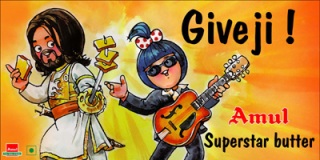
The Superstar has been the epitome of consistency and reinforcement. Most of his movies fall into a template of good-vs-evil, with an introduction song, a fun-filled first half, trouble and pain followed by a climax where the good finally triumphs. Right from the first instant the audience know that the hero is going to win, but they still stay glued on to see how. Even the trademark way in which his name is displayed, right at the beginning of the movie is an example of this consistency. Indeed this particular aspect has been an object of much criticism, but the critics don’t realise that it’s this consistency that has made him what he is today. They see movies as individual units rather than being part of the larger canvas.
Delivering an experience:
It’s a clichéd statement in the marketing world that “Good brands deliver products, great brands deliver experiences”. People know that the coffee in CCD is over-priced, but still go there because they cherish that experience. The silencer technology which mutes the engine sound in bikes is ages old, but still Royal Enfield retains the classic thud-thud sound in its engine as its part of the experience of driving a Bullet. Iconic brands like Disneyland are built around the concept of getting a new experience. When a brand delivers only a product it wins customer satisfaction, but when it delivers an experience it wins customer delight and as an extension his loyalty for life.
What Rajini offers you is not just a movie, but rather a movie watching experience. The experience starts right at the point of getting a ticket. The very fact that it’s so hard getting a First Day First Show (FDFS) ticket makes it all the more exciting for everyone involved to try and get one. And it almost feels like a mini-victory when the ticket is in hand, and we can brag and boast in front of those weren’t that lucky enough. Next come a series of rituals which enrich the experience even more. Starting from the Paal Abhishegam (milk libation), to garlanding the cut out, to bursting crackers, the fan obtains a whole lot of experiences much before the film has even started. Compare this with most other movies, where you just buy a ticket and walk in, and you can see how stark the contrast is. And when the movie starts, the whistling and dancing by fans in the crowd keeps your adrenaline pumping and helps you derive a lot more out of the movie than the mere visuals and dialogues. His movies are formulaic, its hard to get a ticket, when you get one its real expensive, you can’t hear the dialogue in the theatre and there is just too much crowd. But as all these are part of the experience that the fan has come to expect, they indeed emerge as huge positives for the movie while for any other movie in any other place, these would be negatives which would be enough to ensure a flop. This is the power of the brand, and this is why he is the Superstar.
Brand Evangelism:
I know it’s getting too long, but what would be a post on the star if you don’t mention about his fan clubs. Interestingly, one fact which distinguishes a Rajini movie from the rest is that the movie creates its own buzz, just because of the presence of the star. No in-depth interviews required, no public appearances needed, no extensive marketing budgets needed. The fans are there to take care of it all. They are there to spread the message about their star and his movie. They are willing to contribute money and effort in erecting his cut-outs and posters. They are there to drag their friends and family to the screens. This is what is called Brand Evangelism, and this is the very pinnacle that a brand can reach.


Indeed very few brands have reached this height. Apple and Harley Davidson are examples which come to my mind. Apple has fanatic user bases having fans who are ready to buy anything that is Apple. They are willing to wait for hours to grab the first pieces of an IPhone. They are ready to go on Facebook and fight for their brand. Harley Davidson has these wonderful HOGs (Harley Owner’s Group), which is a bunch of Harley users who have formed clubs and organise their own biking rallies. Not many other brands are lucky enough, and they have to keep shelling out huge portions of their revenues as marketing budgets, just to remain known to people. Even the above two brands do feel the need to market their products. Which helps us understand why Rajini sir and his support network of hardcore fans are so special.
Why Rajini makes business sense:
When Sun Pictures decided to invest nearly Rs.200 Crore in the movie, many called Mr.Maran a fool. But having possession of a brand so powerful, that in comparison even Apple fades in brilliance, he just needed to the rethink the existing distribution strategy to leverage the star to his maximum. And once when he did that, the result is for us all to see. Indeed it wasn’t the brand that was lacking for so long, but rather the skill and imagination levels of those who exploit it.
The Rajini brand is much bigger than the man himself. The power of the brand lies in the experience, the aura, the behind-the-screen stories, the legends of past conquests, and most importantly the bond it has formed with the fans. It would now be interesting to see how they respond to his new digital avatar as Sultan-the warrior, because therein lies the brand’s next big test.
Note:
This article appeared in the Business Standard, dated November 25, 2010. Here is a link to the online version of it.
http://www.business-standard.com/india/news/the-aurabrand-rajni/416020/
It was also published in The Marketers, the marketing blog of IIM Calcutta.
http://www.themarketers.in/rajini%E2%80%99s-dominance-a-branding-perspective/
Rajni’s evolution, an economic perspective
This is not a review for Endhiran.
Well that doesn’t mean I won’t be talking about the movie. I would of course. But I would be talking of random aspects which I thought of at various points through the day, while watching it and while discussing about it. Reviews are but a way of either selling a movie or degrading it, and the former is not necessary for a Rajni movie while the latter would amount to blasphemy.
And also excuse me for the title. Being an MBA student, I am obliged to use terms like “economy”, “branding”, etc in whatever I write.
One thought which kept playing in my mind throughout the movie was the evolution of Rajni. My friends from the north keep asking me what’s the Rajni craze all about. Why does the man signify so much to his fans, much beyond what any star ever has. Well the answer I can think of is, the man has always portrayed what an ordinary man aspires to be. Rajni attained stardom playing Kaalaian in Murattu Kaalai, at a time when TN was primarily agrarian and people associated themselves with a lifestyle where the fields and the livestock played a huge part of their existence. At that time, for a man, the greatest glory possible could be to tame the wildest beast in the local Jallikattu. It would be his ultimate claim to fame in his small little world of village fairs and festival time games.

Then came the time when factories were opening up in large numbers in the state. Large number of men from poor families worked for paltry wages in these factories, oppressed many a times by the management due to lack of proper labour rights. This was the time when Rajni did a slew of roles where he was a factory worker, many a times leading the workers against the oppressors in the management and fighting for their rights. Mannan, Uzhaippali and many other such movies became hugely successful as the people in these segments could connect with the character.

India was opening up around 1992. The cities were no longer the same, what with capitalism getting a lease of life, and the permit raj going out the window. This was the period when Madras (as it was called then) was transforming like crazy. New jobs were created, new opportunities discovered and in the process some of the people who were still happy leading life the old way were being treaded upon. Annamalai was the struggle of one such person. There were many Annamalais in the city then, leading a happy life in a comfortable home, where the cattle was considered part of the family. And then suddenly they became impediments to growth, what with the real estate boom happening. In Annamalai Rajni shows the anguish of one such guy. When his friend’s family snatch away his ancestral land, he fights back, and the common man cheered every time he saw a victory.

If there was one group of people who grew with Madras, that was the auto drivers. According to stories of pre-90s Madras often narrated by my father and how it has changed since, the number of autos went up exponentially in the 90s. Becoming an auto driver became the livelihood choice of so many city youth who were seeking self-employment after not being able to get a job anywhere else. Many of the auto-drivers were people with considerable amounts of education who had no other option but to choose this profession to make ends meet. And if one thing made them hugely popular in the state, it was Thalaivar playing an Auto-driver in Basha. By enacting a role which was so central to the city’s functioning and which was such an integral part of the fabric of the city that it was almost always ignored and overlooked, he caught the audience’s pulse. Rajni played the ideal auto-driver who is courteous, doesn’t overcharge his customers, and is good to a fault. And before you know, he had the whole auto-driver community in his pocket too. Well aspiring super-stars make note, that’s how you acquire whole segments of fans.
Now with Padayappa I am facing serious difficulty. It’s too important a movie for me to conveniently ignore (as I have done with hundreds of other movies), while it just doesn’t fit into my model. But then, by the time Padayappa released, Rajni was too big a star for him to seriously consider following any trend. Actually the reason Padayappa did so well was because it had all the elements that people had come to love in a Rajni movie. And according to me, it also signified the end of an era.
Post 2000 Thalaivar really didn’t do too many movies. But in the two most notable ones, he again played roles in line with the current economic trend. I am referring to Sivaji and the latest Enthiran. We could see Rajni becoming a software engineer, a term unheard of when he started his career back in 1975. That brings me to the thought which really took me off writing this post. Rajni’s latest avatar.

When the Robots were making sexy formations and ransacking the town, Rajni coolly sits at his terminal and examines the source code, while trying to incorporate a bug in the system, terms and actions which are like day to day mantra for the Chennai youth of today. I couldn’t help smiling at the thought that the same Rajni who tamed raging bulls to obtain hoots and whistles back in 1980, could get an equally good response displaying sharp programming acumen in 2010. Then only I realised that Rajni is nothing but a superimposition of the wildest desires of the youth of any period on the screen. That’s why he is always hot, that’s why he has remained a superstar.

And of course his age is not going to limit his popularity in the future too. Right when he is at the top of his game, comes the next superstar movie, Sultan where he dons the digital avatar. And with that comes the independence of keeping the brand and legacy alive without having the physical necessity of the Superstar’s presence on screen. Some good things are forever. I seriously hope superstar is one of them!!
On Masala movies and Multiplex audiences!!
If there is one thing which is a great unifier as well as a great divider of masses in India, it’s the movies. Every strata of society is attracted to them, every person is touched by the film industry in one way or another, whether or not they actually go and watch a movie in a theatre. There maybe millions who don’t know who the President of the nation is, but hardly would there be anyone who doesn’t recall the name of their local superstar. Then how can it be called a divider of masses? Well people are divided into Bollywood, Kollywood or Tollywood (though many of the movies made by them are directly lifted from Hollywood). Even inside an industry they are Rajni followers or Kamal followers, Salman fans or Shahrukh fans, Chiranjeevi or Nagarjuna supporters. People are divided into A, B or C class audiences. They come under either the so called ‘sophisticated multiplex crowds’ or the single screen ‘hooligans’. Some of them are able to enjoy the first day first show experience of a mass hero movie, while others can only derive fun out of pointing out the lack of logic in them. Some respond to the intellectual appeal of art house productions while many others can only use them as a treatment for insomnia.
One type of movie which never fails to interest me is the mass hero movie. This is characterised by a larger than life hero, who is invincible, omniscient, omnipresent and can also transform himself into a dancing and singing sensation while having the capability to attract the hottest chick in town without even speaking a word. He is the son whom every mother would love to have, the fighter which every army craves for, and the man every kid aspires to grow into. Of course there are variations to this premise, though those are always minor. In an industry characterised by uncertainty, this is one formula which is has the highest probability of success. Add an item song and a hot heroine into the equation and the probability just gets better.

But then there are two fundamental problems which are affecting this franchise. One is that, the formula has already been beaten to death. People almost certainly know what to expect. They know that the hero is going to win in the end, the only thing left to see is how many bad guys he beats up en route and how many songs does he shake his legs to. Of course new aspects are emerging in the formula and some old favourites are now becoming extinct. One such thing is the concept of the hero’s sister getting raped. There hardly were any movies 20 years back without this, but thankfully the bad guys have learnt some manners in the 2 decades since then. Still there are some real bad ones who resort to that, but what the hell, even they should be given some room for nostalgic activities.
Another problem is the emergence of the self proclaimed “class audience”. This group is majorly composed of young college guys or people who passed out in the recent past. Having nothing to study in college and having no idea how better to use a PC and an internet connection, they end up downloading all the English movies that ever got released. And once they run out of the Terminators, Rambos, Rockys and Mummys they know about, they start searching for a source which gives them an exhaustive list of movies to see. That’s when they find IMDb with its famous top 250 list. Even though they have to resort to reading the storyline in Wikipedia after watching most of those movies, they still persist, as by doing so they earn the bragging rights of having seen these many movies out of the IMDb list. This is when they start imagining themselves to be connoisseurs of sophisticated movies with complex plot lines. But of course, just watching these movies may not be enough for their sophisticated image. They also need to start making fun of the part of the population which is still satisfied with mass hero movies. Such jerks they are, still watching run of the mill action movies when there is a gold mine of ‘top 250’ movies available, each more complex than the other, each one helping you feel so much more inferior in thought process compared to those supremely intelligent American directors. So what if I don’t get the plot line most of the time, I atleast don’t end up seeing the same routine being dished out by a new actor with a new heroine (sometimes it’s actually the same routine with the same actor and the same heroine too!!). This is the crowd which suddenly realises that it’s their responsibility to uplift the masses who are still blind to good movies. They feel they should insult the masala movies till the time people wake up from their slumber and learn to appreciate the enlightened stuff. Inspite of having grown up watching Rajni flick a cigarette or Bachchan (or was his name Vijay?) deliver fiery dialogues in a baritone voice; they suddenly become the multiplex crowd who can only appreciate English or Englicized movies.

Now the problem with this crowd is their insane attitude towards most Indian movies. They would get orgasms when Neo stops a thousand bullets just by pointing his hands in that direction, they hold their breath when spider man stops a train single-handedly, or when Hancock knocks of a speeding truck. But when an Indian mass hero does the same, they can but criticize him and make fun of the audience who still believe in such stuff. And when you point out the same to them what do they have to say in defence, “dude seriously where is the logic in your movies; this guy is fighting 10 people at once. Now where can that happen”? When I point out that Neo actually fought off innumerable Smiths in many instances they just get furious, “How dare you compare Matrix with your local movies? Dude, it’s the matrix! Neo was the One. Don’t you see the logic, it’s so clear”. Actually it’s not, but what the hell, they do believe in it.
All super-hero movies are driven by the same logic- “don’t look for logic here”. Willing suspension of disbelief is the premise of human existence. Didn’t Krishna lift the Govardhan using just his little finger, didn’t Jesus come back from the dead 3 days after he was nailed to the cross, didn’t Moses make a way through the Red sea, or didn’t Sri Ram’s army build a bridge of floating stones to reach Lanka. The point is that people are ever so ready to suspend their disbelief, if it means that they feel comfortable or content for that period. What’s the harm? I would say the level of sophistication of Indian cinema and Indian audience is far greater than the western ones in this regard. While the western filmmakers need to keep coming up with absurd theories of entering the dreams, or battling with unheard of psychological diseases or saving an unknown planet, so that they can present unlikely scenarios on screen where the heroes end up doing stuff which is not humanly possible, the Indian filmmakers have it easy. The audience over the years has internalised the fact that the hero is someone who is capable of everything. You don’t need to waste your time laying a premise where the hero gets creative liberty. Rather the audience bestows the same upon him, just by his right of being a hero. So the film maker can concentrate on the aspects of the movie which they actually want to see, which is the action, romance and sentiment stuff. Indeed let me take one of the most heralded English movies of this season – ‘Inception’, as an example. Take away the scenes where the director explains to you the whole logic of entering dreams and stuff from it, and what do you get. A tale where there are some daredevil fights, some husband wife sentiment, and some catchy dialogues. Exactly my point!
My personal opinion about masala movies is that they are a necessity. I do mind numbing work every day of the week, battle it out with excel sheets, listen hard in classes to get the logic which a professor is trying to communicate (please believe all this, atleast for argument’s sake!!), so why should I also spend my leisure time in an activity which is going to strain my brain cells. I did rather sit back with some chips and enjoy a nice formula movie, knowing all the time what is going to happen but still enjoying the routine. This doesn’t mean any person can don the hero’s mantle and get the fan-following. As I said, the Indian audience needs to internalise the fact that you are someone with superhuman powers. If the hero is not able to convince them of the same, even a solid logic isn’t going to help, as they would anyway be negatively disposed towards him. So if you have the charisma, flaunt it, if you don’t then try to get it, and if you can’t then better sit at home. There are better people around to save the world.
So the next time you think of making fun of a Superstar or a Salman Khan or a Nagarjuna movie, better think twice. They are where they are because the audience so desires. And if you feel you are more intelligent than the collective consciousness, then you are the biggest fool.
Rebranding the Political Career
Let me describe a job profile to you, and you could visualise how it would look on your CV.
- Selected out of 56 applicants, to lead a group of 2 million people for a period of 5 years
- Facilitated setting up of 230 large industries, 23,000 SMEs and many other businesses
- Instrumental in increasing the contribution to the treasury by 11% to Rs.1,300 Crores
- Implemented a scheme to develop 6 hospitals and 30 schools from the budget allocated
- and lots more….
Now tell me how sexy would such a CV look. And how proud should the person having such a CV be of his achievements? And how much of respect should he get from various industry heads and people at large for such accomplishments?
Sadly the answer to none of the previous questions is positive.
As you may have guessed by now, I am describing an MP here (and let’s keep it to MPs for the time being, MLAs would complicate the discussion a bit). How many of us have realised the magnitude of responsibility that an MP carries, and even if he under-performs, what’s the importance of such performance for the economy as a whole?
The idea for this article originated from a debate I saw in NDTV-Hindu a few days back. The topic was “Should MPs be given a salary hike?” From what I could gather among the clamour, MPs haven’t had a salary hike in the last decade, and feel government clerks are earning more than them. I felt there was logic in their anger. And though the side arguing in favour of the MPs was really good (thanks to the frank and witty argument of Mr. EVKS Elangovan), the other side whose point was that MPs didn’t deserve the salary hike won hands down. And here the decision was given by the studio audience, where except 2 everyone else was against MPs getting a fatter pay-slip.
What struck me as odd in the above episode was that inspite of logic being on the side of the MPs (of course they need a hike, you can’t even buy a khadi dhoti with a salary which hasn’t changed in years), inspite of the opposition having some really poor speakers, inspite of an IIM-A grad with good amounts of credibility, Mr. E. Sarath Babu (who was sadly not even half as articulate as I expected him to be) arguing in favour of the MPs, they still lost the debate. So what’s it about MPs that people are so averse to? Why do they never win the favour of the public even though their job profile itself is being the true representatives of the people?
Let’s look at some of the common expectations and perceptions that people (not the man on the street but rather young educated people) associate with the political job. One thing is they want their politicians to be akin to social workers. The image of a good politician is being mapped to the Lal Bahdur Shastrys, Kamarajs and other such politicians of yore who died penniless and were known for their humble backgrounds. The ideal leader shouldn’t care a bit about money, but rather be phobic to it. He should accept token salaries of Re.1 (as was done by many not so ideal, infamously rich politicos), and concentrate only on the pleasure derived out of serving the public as a takeaway from the job.
Next comes the impression they have developed of day to day MPs. They are generally gundas with as many Swiss bank accounts as they have criminal cases against them in various courts. They generally have half the women in their constituency as their wives or mistresses which indeed presents them with a golden opportunity to make one of them contest from that seat in case they get put behind bars (or rather decide to take a vacation there). They are so obscenely rich that they use Rs.1000 notes as toilet papers, which also incidentally double up as bribes during election times to win some votes.
Now let’s come to the disconnect. There is obviously a wide disconnect between the expectations listed above and the reality perceived. This disconnect is probably as wide as that between heaven and hell (its always easier to get away with abstract examples!!). There is another disconnect between the reality perceived and the ground reality. Though most politicians are no saints, they aren’t as bad as portrayed above either (of course there are exemplary cases against which I can’t argue). This is mainly because our impression of politicians is framed by watching run-of-the-mill cinema or 24 hours news channels (now I seriously don’t know which of the two is farther away from reality).
There is a third disconnect and one which often goes unnoticed. This deals with how justified people are in expecting MPs to be saints who have sacrificed all material pleasures. Isn’t this asking for a bit too much? Think of it, you want your leaders to be damn good, and still can’t digest them living well. And here living well doesn’t mean amassing wealth, but rather having a comfortable existence in tune with the ways of the world. Don’t you think this is why many good people spurn away from a political career? If being a good politician means living the life of a government clerk while dealing with the responsibilities not even the CEOs of top firms are familiar with, then who would want to be a good politician?

The top jobs of the nation desperately need a rebranding. If firms could spend millions in optimizing the way an assembly line worker tightens a screw, then why shouldn’t we call for tightening the screws in the system which determines the fate of the world’s largest democracy. Can’t the HR lessons be applied here? Can there be a carrot which could attract top talents to the job and still keep them away from the dirt of corruption?
The political job has an inherent attraction. The ability to serve one’s nation, the pleasure derived from doing greater good. But this is often not enough for highly talented people. They have family and want a stable life. They get multiple offers from top firms which pay them well and also keep them in good respect in their society. Though they want to help, they don’t want to risk their whole life and career for it. So what’s the solution?
This question led me to think of another organisation whose prospects faced similar difficulties in making a choice. The solution they came up with has largely contributed to their success in modern times. The organisation I am talking about is the Defence Forces. The defence establishment introduced the concept of short service commission. Under this bright young people could join the defence, serve their country for a short stint of around 5 years and at the end of that period decide whether to continue or leave the job to get settled with a more mainstream job. This had multiple benefits. One was that people were no longer apprehensive about dedicating their whole life to the country. This brought down the psychological entry barrier for the job by a great extent. The next benefit was that once people were in the job, they realised how much they really liked it and many stayed on. Also the discipline and work standards developed in the army made them inherently more attractive to recruiters for other jobs. So it was win-win for all.
But then how can we apply this principle to politics. Aren’t the two scenarios vastly different? I feel they aren’t. For one, the apprehensions are the same. And also the period of commitment is similar. And if the job is done correctly, the attractiveness of the candidate at the end of the stint in other industries could be immense. So how do we go about doing this?
I feel the country can’t be reformed by independent candidates. No one takes them seriously (come on, that bloke wasn’t worthy of even a party ticket!!). And parties started by intellectuals hardly work. Lok Paritran, the widely publicised party started by a group of IITians, took a much shorter time to break-up than even an average campus relationship! I say, let the pros run the show. Let the established parties remain the mast heads (haven’t we studied about core competencies and the time it takes to build a brand, even a notorious one). And let the talents do what they do best, work for them.
The parties of India are facing a situation which is new to them. People are a lot more aware and super-stars no longer win them elections. Their reputations and credibility are at an all time low. With the emergence of an educated middle class, people are no longer satisfied with uneducated cattle-herds with criminal records running the show . Smitten by the Obama phenomenon, the urban public wants slick educated leaders. The victory of the likes of Shashi Tharoor over more established opponents is a good example for the same. So how to give the people what they want?
Parties could, in the next Lok Sabha election, call for resumes from top talents (people in their 30s-40s who are at the peak of their careers but disillusioned with their work or badly needing a change) for contesting in select urban constituencies. Anyway many such seats are literally given away to as yet unknown candidates. A panel of experts could shortlist ones with good amounts of experience and leadership qualities in various industries (disclaimer: any resemblance to the IIM placement process is purely coincidental!!). Then there could be either interviews to select the best among them, or still better share these shortlisted resumes online and let the voters decide which one should contest the election. When a party does something like this, its credibility gets a boost and it instantly becomes popular with the public (read as free publicity). This popularity also gets reflected in other constituencies where the old system is still in place. Result, party gains greater goodwill which is a necessary condition for victory (of course that won’t be a sufficient condition, as long as the opposition employs professionals in the field of booth capturing).
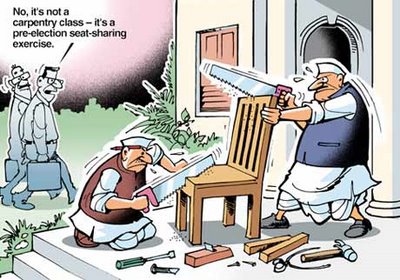
What’s in it for the “Talent”? That’s what is explained in the opening para of this article. If they win the election and display exemplary leadership during their tenure (which they should, considering that the precedents set are pretty poor), they would be some of the most sought after people at the end of their tenure. Of course the power bug may have bitten them by then and they may want to continue, but even then we stand to get far more educated leaders than we currently have. And if they want to go back to a more mainstream job, then I am sure the McKinseys and BCGs of the world would be ready to absorb them. Result, a better system than we started out with. And one where politics has become a lot more respectable profession than before. From the next election onwards the opposition party too may realise the merits of this and follow in the footsteps. In the meanwhile people from other constituencies would raise their voice saying that they too want professional leaders. And slowly but surely we would see a transformation in the way the country is run.
This brings us back to the argument of respectable pay scales. For any of the above to happen the government has to step in and make the pay of MPs comparable to highly lucrative corporate jobs that such candidates may have to leave. After all you can’t pay peanuts to professionals.
Ok, the above piece wasn’t fiction guys. I really believe it could happen, at least in an ideal world (which essentially translates to ‘it can’t happen’, but what the hell I am a believer). Agreed my argument was too simplistic and assumes that the actors involved are rational, but so is the case with mainstream economics. And that seems to be still in vogue anyway.
So keep your resumes ready guys. Who knows which party may read my blog first and call for applications!!!
The Facebook story
Recently I went to one of my friend’s house before we both started out. In the 5 minutes he took to get ready, I was browsing through his shelf of books. It was filled with the good-old spy novels that were such a rage at one time. Bourne Supremacy caught my attention. It was one of those books which I had left half way through, for one reason or the other, and such books always haunted me. As I tried to hide from the book and the temptation to borrow it, inspite of knowing that I am not going to read this one anytime now, a realisation slowly dawned on me. I hadn’t read a single good book in the last 2 years. Actually the reading habit as a whole had taken a beating, i.e. if you don’t count going through the status updates of nearly half a thousand of your ‘Friends’ and daily routines of even more ‘celebs’ as reading and if you don’t consider FaceBook to be a real Book
This train of thoughts led me to the prime suspect, time wasted online. And I questioned myself, “Was it really wasted?” Of course I had been spending disproportionately greater hours online than doing anything else. Of course, Facebook had more of my attention these days, than even the hottest chicks on campus. Of course I had gotten into this habit of mentally framing whatever happens during my day in terms of my “next cool status update”, one that is going to make me more likeable among my friends, and one that is going to keep people talking about me. But is all this really a waste of time?
I tried to reason with myself. I am fresh out of college, and living in a city where not even one of my college friends live. National SMSes aren’t that cheap, and calls are so yesterday. Of course I had to keep in touch with them. Of course I had to keep engaging them in funny conversations, lest they think I have become such a snob and self-centred bastard after making it to a B school. And isn’t it fun? And how much different is it from a book anyway? You get to hear some pretty interesting stories (and in many cases they are just that, “stories”) about what’s happening in someone else’s life, there is romance with all those ever-changing relationship statuses, there is the horror evident in so many exam-time posts (or the tragedy of reading through someone else’s cribbing), there are the really comic (atleast the people who come up with them think that way) one liners, there is the odd mystery message which you never seem to understand whichever way you read it and more. You get glimpses of US grad schools, Australian outback, German train stations, the Singapore Merlion ( now I have had an overdose of this one!), queer Japanese toilets and so much more stuff you never expected to see in your friend’s albums. Life has never seemed so dynamic, and so many bozos who hadn’t talked a word to you during 4 years of college, suddenly seem like the rockstars you failed to socialise with. So isn’t Facebook the ultimate boon that humankind ever got? Isn’t it our duty to wire up Africa fast and blast out the firewalls in China so that the rest of the human race could enjoy this fruit too? Isn’t Facebook the key to world peace and the ultimate sign of the triumph of humanity?
Sadly it’s not.
The success of Facebook is just a reflection of the sadistic attempt at existence and happiness that our lives have become. It’s a precursor to “The Matrix” which the Wachowski Brothers warned us about. It’s a clever way of living a false life, a life without a true identity, or putting it more ironically, a life without a Face. Hiding behind our walls, we feel a false sense of security in meddling in others’ affairs. The elaborate process of befriending someone has been relegated to the click of a button. And to justify the exercise and feel good about ourselves, we resort to horoscope applications which always seem to suggest that we are going to be the next big stars of the world. Who are we trying to fool, but ourselves? How many of these people would actually qualify as your friends? If I apply “The Marriage Invitation Test” to them, not even 20% pass(This is a very simple test, of asking yourself whether or not you would invite one of these people to your wedding). Indeed it promotes a false sense of happiness and a misguided notion of achievement which actually keeps us away from the more important work at hand. The success of Facebook in India and it becoming the numero-uno social networking site of the country is as much a reason to celebrate as the rise in the levels of alcohol consumption and prostitution in the country are.
But isn’t calling social networking sites the root of all evil in the world a communist propaganda? Maybe this guy is attending all the wrong rallies in Kolkata. The answer is a definite no, atleast to the second statement:). This is the sort of realization that dawns on you during hours of self-analysis, which you resort to during hours of being cut off from the internet. When your fingers start twitching cos you weren’t able to post your current achievement (being pooped on by a crow) on Facebook, when you feel so damn irritated with life when the girl whose album you have been secretly checking out daily, suddenly finds out how to use the privacy settings , or worse when you find out on your wall that the hottest chick of your locality is now hooked up with the greatest moron you knew thus spoiling the perfect day for you, that you realise how much of an evil addiction FB has become in your life. Is this really necessary? How nice and simple your life was before all this. You had just the right amount of friends, and you spent just the right amount of time with them. They never encroached upon your privacy and you never let them in on your private secrets. The good girls were locked up in their houses, far away from the gazes of the roadside romeos, which made them look even better when you saw them the next time. The morons had their rightful place in the world, and thankfully the profs were far away from all your day to day discussions (ya, now even they are active on FB, making me resort to using complex privacy settings!!).
So the question arises, can we live a life without social networking? Can we bring the good old books and the nice old campus discussions back into our lives? Can we stop poking our noses into others affairs and stop laying our lives bare for others approval?
Damn, I am asking too many rhetoric questions. Would I stop asking questions like this in the future? Never, mind. Well I don’t know answers to many of the above. Maybe some of you can answer them. As far as I am concerned, raising issues is all I know about. Solutions- well let them emerge!!!


